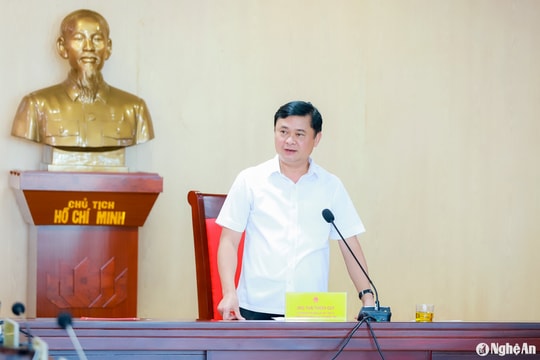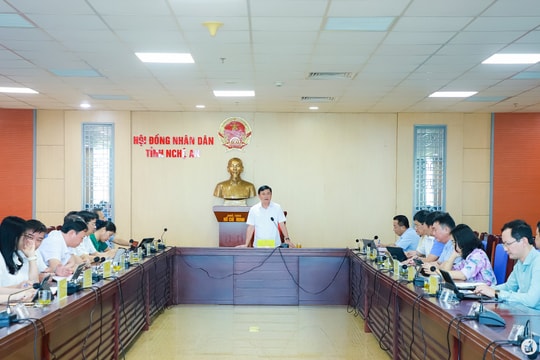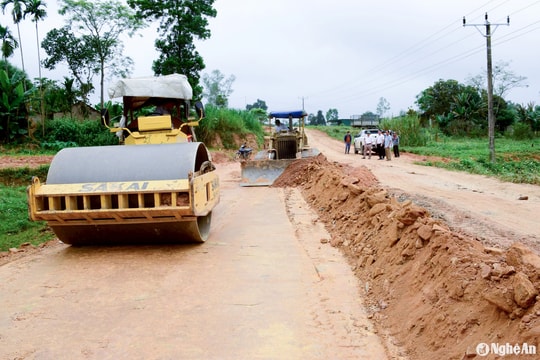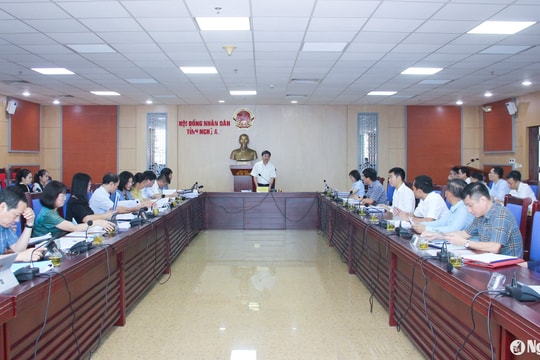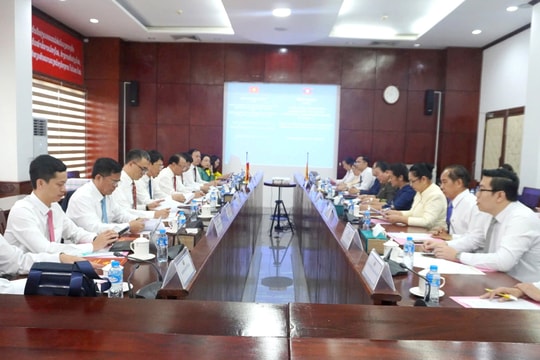The Committee for Culture and Society, Nghe An Provincial People's Council supervises medical facilities
On August 28, the Committee for Culture and Society, Provincial People's Council led by Mr. Chu Duc Thai - Head of the Committee for Culture and Society, Provincial People's Council, conducted a survey and worked at Nghe An Provincial General Hospital and Nghe An Obstetrics and Pediatrics Hospital.
Many problems
Working with the Survey Team, the representative of the Provincial General Hospital's leadership reflected many shortcomings, difficulties and problems related to the procurement, management and use of drugs, supplies and medical equipment.
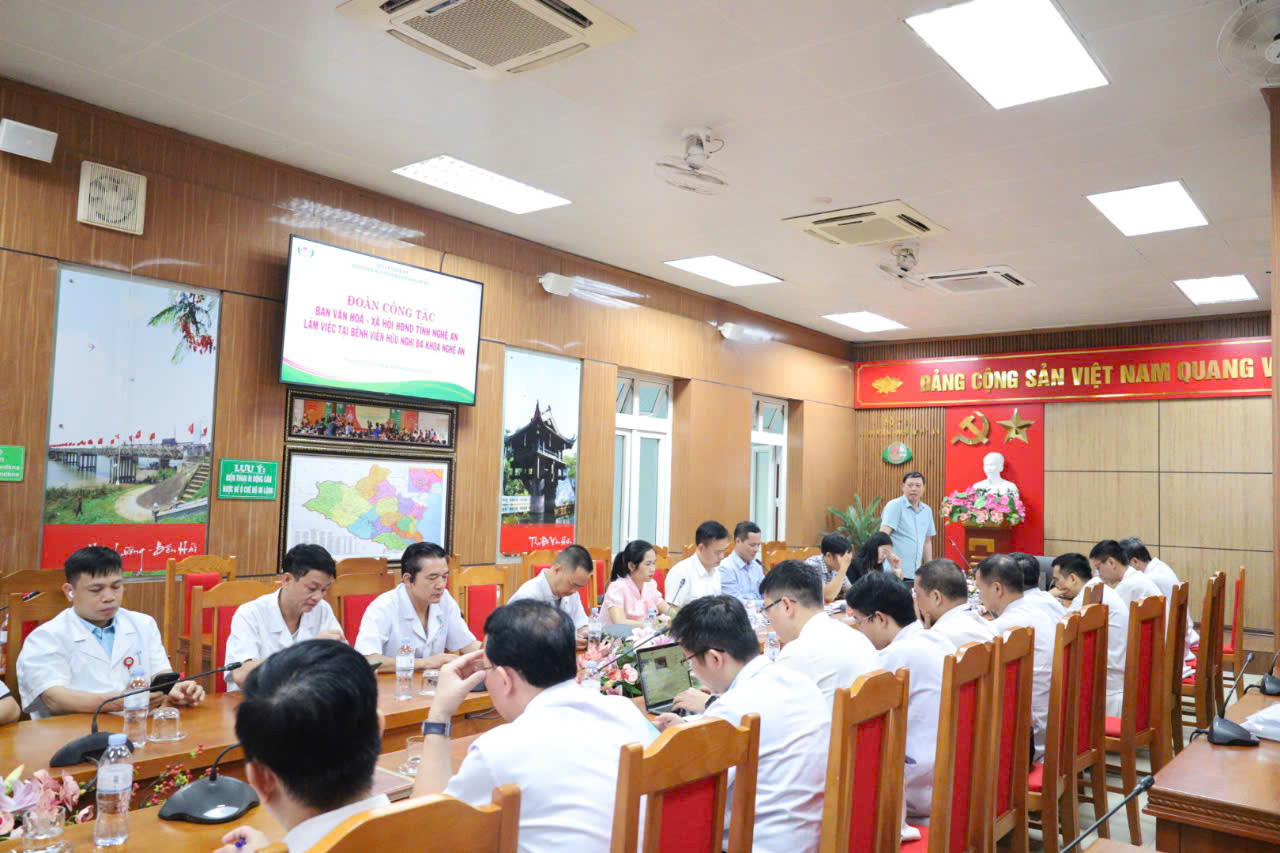
The organization of planning and contractor selection goes through many steps in the process, so the implementation time is long and it is difficult to be proactive; the units that carry out the bidding themselves still face many difficulties and problems, especially the problem of lack of human resources, limited capacity of officers and civil servants; regarding the repair and maintenance of public assets, there are no economic and technical regulations, standards, or norms.
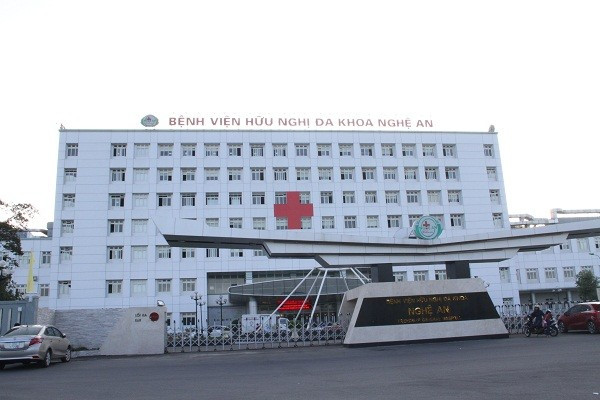
One of the current difficulties is that equipment breakdowns are unpredictable. When they occur, we have to wait for the bidding period to start repairs. During that time, there will be no equipment to serve patients. There are cases where after repairing one breakdown, another breakdown occurs. In addition, most of the repair service providers and companies are in big cities such as Hanoi and Ho Chi Minh City, so the inspection and repair process takes a long time.
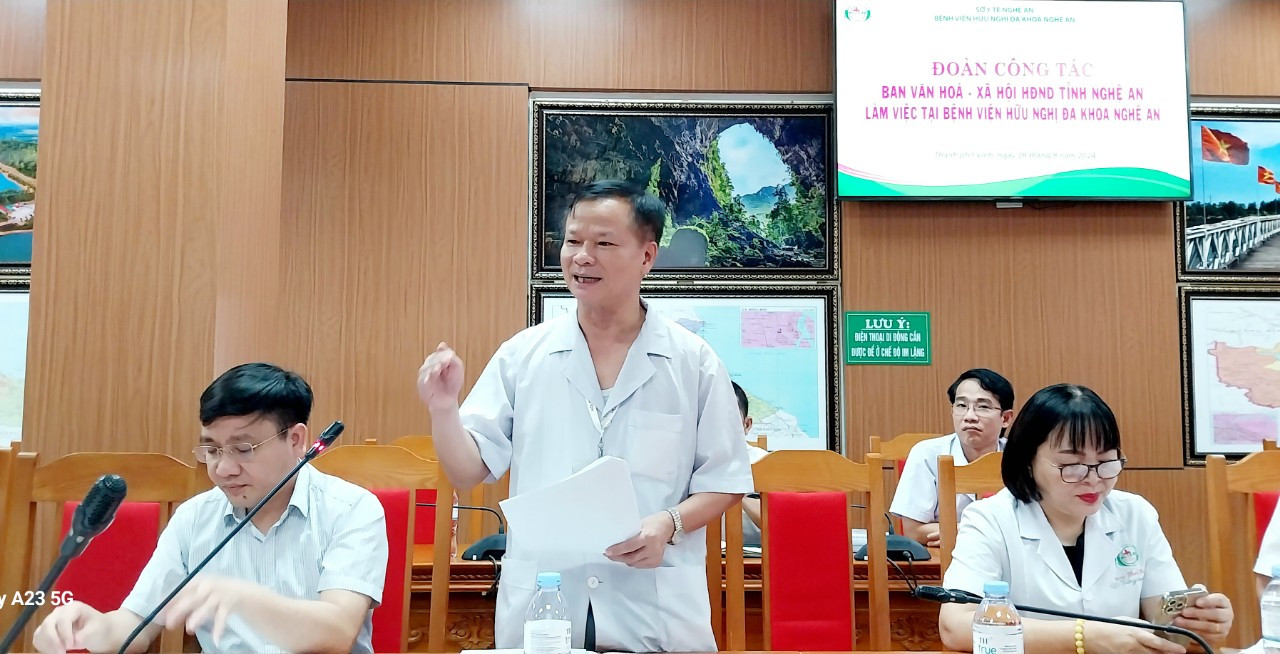
Regarding the implementation of bidding for drugs, supplies and medical equipment, there is currently no consistency between the Law on Bidding and the Law on Management and Use of Public Assets; the Law on Bidding and a number of legal documents on the field of medical equipment still overlap, some documents have been amended and replaced after only one year of issuance, causing difficulties for units in grasping regulations and implementing them; in addition, in accordance with the regulations of the province, the implementation of the decision-making process for purchasing still has many "cumbersome" and unreasonable points.
The hospital proposed that the Government unify the content of the Procurement Decision in the Law on Bidding and Decree No. 151/2017/ND-CP in accordance with the Law on Bidding (no requirement for approval of the Procurement Decision).
The Ministry of Planning and Investment should soon complete the legal corridor and legal documents on procurement bidding.
The Ministry of Health issued a Circular guiding the classification of medical equipment. The Ministry of Finance established specialized price appraisal units, established and developed management plans for bidding consultancy units.
Associate Professor, Dr. Nguyen Van Huong - Director of the Hospital said that the authority to purchase goods and services at autonomous hospitals of group 1 is not much different from that of autonomous units of group 2. If the regulations do not change, the operation of hospitals, especially autonomous hospitals of group 1, will be more difficult. The Director of the Hospital proposed to promote decentralization for autonomous hospitals of group 1 in purchasing, managing and using drugs, supplies and medical equipment; at the same time, allowing the Hospital to proactively purchase, promptly repair and replace equipment from the unit's career development fund...
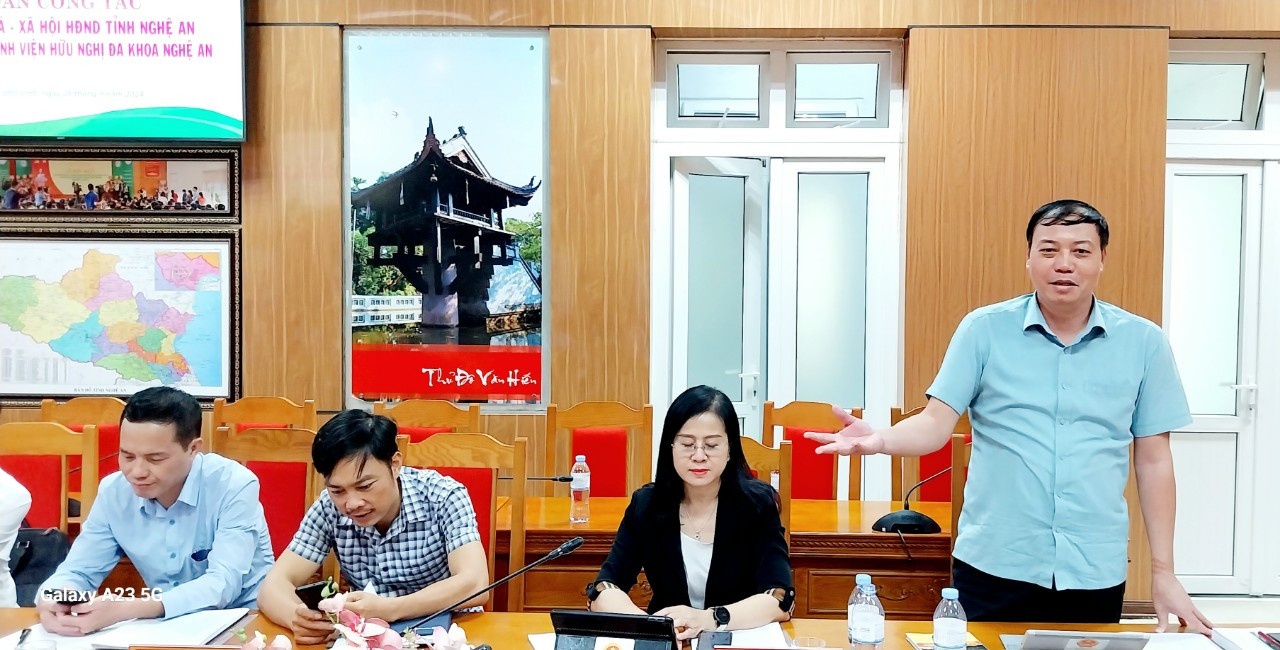
Concluding the working session at the Provincial General Hospital of Friendship, comrade Chu Duc Thai acknowledged and highly appreciated the efforts of the Hospital in purchasing, managing and using drugs, supplies, medical equipment, meeting the operational needs of the Hospital and the medical examination and treatment needs of the People; the purchasing, managing and using drugs, supplies, medical equipment were strictly ensured, in accordance with regulations; At the same time, he acknowledged the difficulties, problems and recommendations of the Hospital to report to the Standing Committee of the Provincial People's Council, requested the Provincial People's Committee and relevant agencies to remove them, creating conditions for hospitals in purchasing, managing and using drugs, supplies, medical equipment...
Proposal to remove difficulties
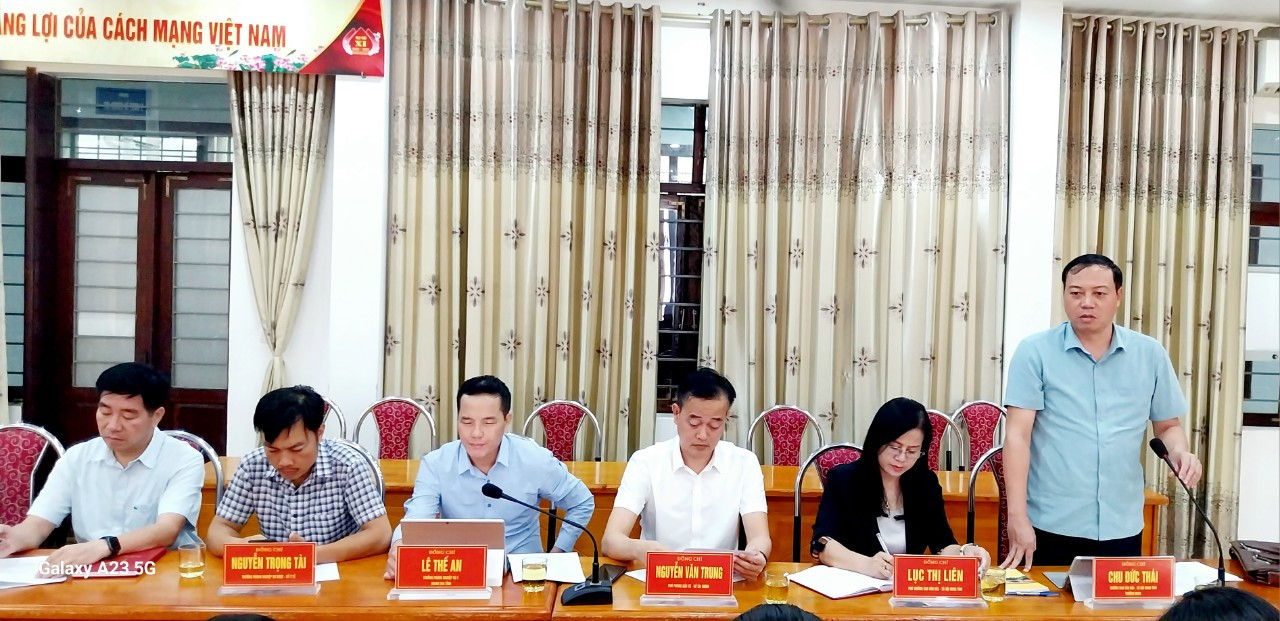
Working at Nghe An Obstetrics and Pediatrics Hospital, the monitoring team noted that there is still a shortage of drugs, chemicals, and supplies; a lack of machinery and equipment to deploy advanced techniques; some equipment is old, broken, or has been repaired many times (there are 26 devices currently damaged and waiting for repair) and does not meet the needs of use, affecting the professional activities of the unit.
In an exchange with the survey team, the hospital representative said that the reason for the shortage of drugs, supplies, and chemicals was that the hospital had invited bids for many items but could not select a winning bidder, because the bidder did not participate or participated but the price exceeded the planned price, leading to a high bid rejection rate, such as the Bidding Package for the supply of other chemicals, biological products, and supplies in 2023, with a bid rejection rate of up to 50%; Bidding Package No. 01: Supply of supplies, medical gases, with a bid rejection rate of 46%,...
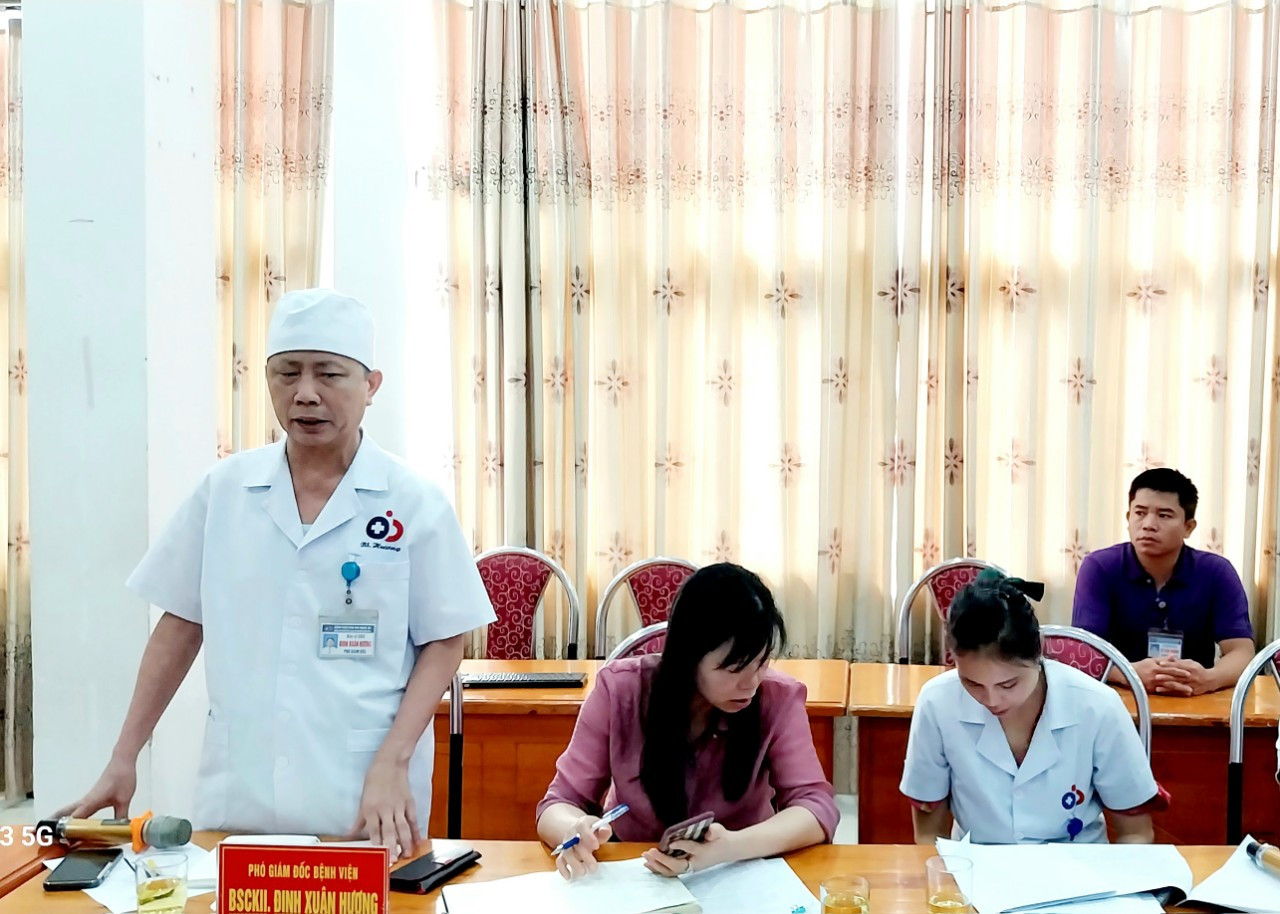
The goods won the bid but the contractors supplied them in small quantities and often had supply interruptions, especially essential goods for patients' medical examination and treatment; the guidance documents were incomplete or sometimes overlapping and inconsistent; the legal procedures related to procurement and bidding still had many shortcomings and problems.
One of the subjective causes emphasized by the Hospital is the apprehension of individuals participating in bidding work from medical examination and treatment units to agencies performing examination and approval; the bidding human resources at the unit are still lacking in both quantity and qualifications.
Due to difficulties and problems in the process of purchasing, managing and using drugs, supplies and medical equipment, Nghe An Obstetrics and Gynecology Hospital proposed that the central ministries and branches issue inter-sectoral and inter-ministerial documents to guide facilities and units in implementing contents related to purchasing and bidding. At the same time, amend and supplement the regulations on bidding at hospital pharmacies (public health facilities conduct bidding to purchase drugs for use at hospital pharmacies); not requiring purchasing within the range of 80% - 130% of the winning bid quantity.
In addition, Nghe An Obstetrics Hospital also proposed that the province establish a centralized procurement center to carry out bidding procedures for drugs, chemicals, supplies, medical equipment, and chemicals to facilitate medical facilities in supplying drugs, chemicals, and supplies in large quantities, saving human resources, and avoiding bid failures due to small-scale procurement at units.
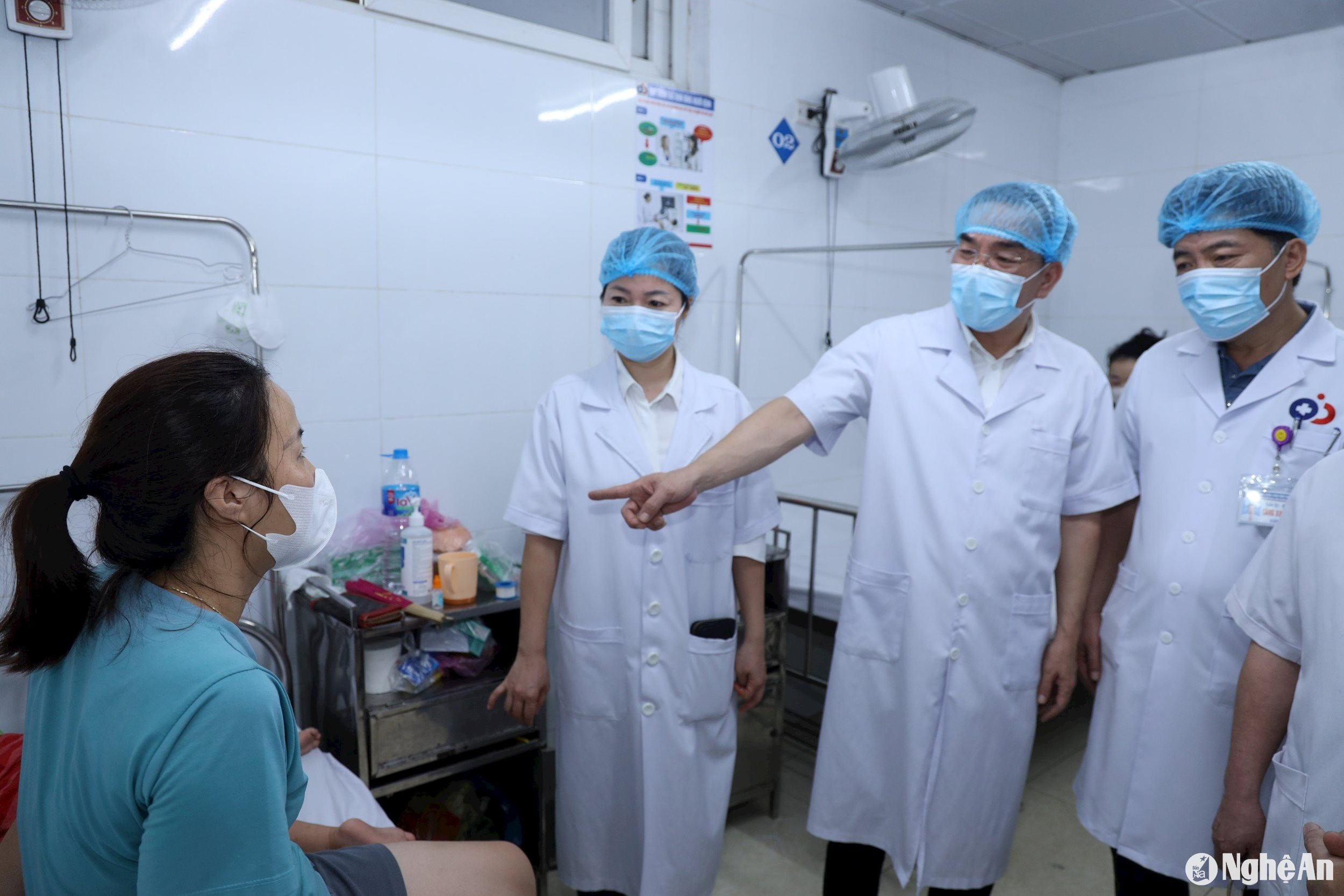
Concluding the working session, comrade Chu Duc Thai shared the difficulties of the hospital in the condition that many legal regulations are still overlapping, many legal guidance documents are slow to be issued; in addition, violations in the medical field in recent years have affected the general psychology including medical facilities and state management agencies, etc. However, the Hospital has made efforts in purchasing, managing and using drugs, supplies and medical equipment; has plans to ensure drugs, supplies and medical equipment, so basically drugs, supplies and medical equipment meet the operational needs of the hospital and the medical examination and treatment needs of the people; the purchasing, management and use of drugs, supplies and medical equipment have been strictly ensured, in accordance with regulations.
Comrade Chu Duc Thai also requested the Hospital to review, supplement, and specifically evaluate the contents according to the requirements of the Survey Team. At the same time, he requested the Hospital to be more proactive in the process of completing documents, implementing the bidding process, purchasing drugs, supplies, and medical equipment in accordance with regulations; limiting the shortage of drugs, supplies, and modern medical equipment that affects professional activities and the people's need for medical examination and treatment.

